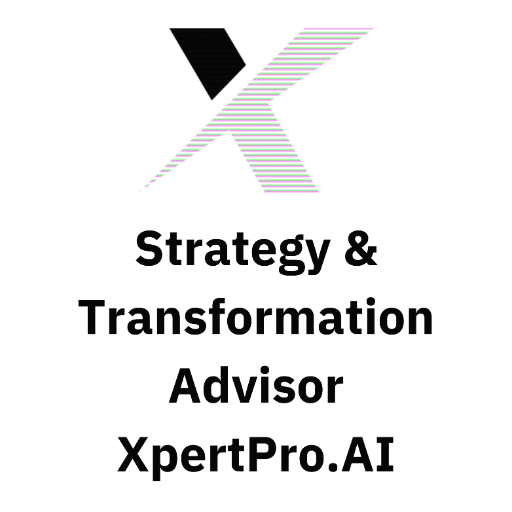Mergers and Acquisitions (M&A) Advisor-AI-Powered M&A Expert Advisor
AI-driven insights for smarter M&A deals.
What are the key steps in due diligence?
How to negotiate the best M&A deal terms?
What strategies can maximize value in complex transactions?
How to align M&A with overall strategic business growth?
Related Tools
Load MoreBusiness Advisor
Your personal business advisor

Real Estate Investment Advisor
🚀 Your REI Coach Giving You EXPERT Investing Advice | 🏡 Largest Real Estate Meetup Group with 5000+ members (www.meetup.com/volition) | 🤑 Helped Clients Invest in $250M+ of Real Estate and Build $100M+ of Wealth

MBB Consulting Case Coach
Modeled after MBB consulting interviews. Trained on 1000+ case studies for a real interview feel. Go ahead and ask me about your case!

Sales Compensation Advisor
Comp Plan Design, Quota Settings, Calculator: SDR, BDR, AE, AM, AD https://calendly.com/jeremylamande

Strategy & Transformation Advisor | XpertPro.AI
Navigating Futures: Your Compass for Strategic Transformation

Merger and Acquisition Consultant
Master the merger and acquisition process with AI-driven expertise and strategic insights. Navigate the complexities of mergers and acquisitions. 🤖📈
20.0 / 5 (200 votes)
Introduction to Mergers and Acquisitions (M&A) Advisor
The Mergers and Acquisitions (M&A) Advisor is a specialized role that helps businesses navigate the complex process of buying, selling, or merging companies. M&A Advisors are responsible for guiding companies through every stage of a deal, from identifying opportunities to negotiating terms, conducting due diligence, and ensuring compliance with legal and financial regulations. Their objective is to maximize value and minimize risks in transactions, providing a holistic approach to business growth and consolidation. For instance, an M&A Advisor might work with a medium-sized tech company looking to acquire a startup that possesses innovative software. The Advisor would help assess the startup's value, perform due diligence on its financials and technology, and negotiate terms that are favorable for the acquiring company while mitigating risks such as intellectual property disputes or financial liabilities. Their work helps ensure a smoother transaction process while also strategically positioning the acquiring company for long-term success.

Main Functions of the Mergers and Acquisitions (M&A) Advisor
Identifying Potential M&A Opportunities
Example
An M&A Advisor helps companies identify acquisition targets that align with their strategic goals, such as expanding market share or acquiring new technologies.
Scenario
A global pharmaceutical company looking to enter the biotech market engages an M&A Advisor to scout smaller biotech firms. The Advisor researches potential targets and presents a list of candidates that fit the client’s criteria, allowing them to narrow down their options and make informed decisions.
Conducting Due Diligence
Example
The Advisor thoroughly examines financial records, legal liabilities, operational metrics, and market position of the target company to assess risks.
Scenario
A private equity firm planning to acquire a logistics company requires an in-depth due diligence process. The M&A Advisor reviews contracts, fleet ownership records, employee liabilities, and the company's cash flow to determine if the acquisition price is justified and whether there are hidden risks that could impact future profitability.
Structuring and Negotiating Deals
Example
Advisors use their expertise to craft deal structures that maximize value for their clients, whether through share swaps, cash deals, or earn-out agreements.
Scenario
A multinational retailer acquiring a local chain of stores negotiates terms with the help of an M&A Advisor. The deal is structured as an earn-out, where the seller receives part of the payment upfront, and the rest based on future performance targets. The Advisor ensures the terms are fair and reflect both parties' interests, reducing the risk of disputes post-acquisition.
Ideal Users of Mergers and Acquisitions (M&A) Advisor Services
Mid-sized to Large Corporations
These companies often seek M&A services to expand their business, enter new markets, or acquire complementary technology. They benefit from M&A Advisors who can guide them through complex transactions, reduce risks, and provide strategic insight into growth opportunities.
Private Equity Firms and Investors
Private equity firms use M&A Advisors to assist in identifying potential investment opportunities and managing portfolio acquisitions. These users rely on Advisors to conduct due diligence, negotiate deal terms, and structure investments to maximize their return on investment while minimizing risks.

How to Use Mergers and Acquisitions (M&A) Advisor
Step 1
Visit aichatonline.org for a free trial without the need for login, and no requirement for ChatGPT Plus.
Step 2
Identify your specific M&A needs, such as due diligence, valuation, or deal structuring, to tailor the tool to your requirements. This helps focus your inquiry and ensure relevant insights are provided.
Step 3
Input relevant data or files for analysis, such as financial statements, market research, or legal documents, to receive AI-generated guidance on strategy, compliance, or financial modeling.
Step 4
Leverage the AI's expertise in corporate law and M&A regulations (GAAP, IFRS, EU Merger Regulation, etc.) to ensure your transaction adheres to all legal requirements.
Step 5
Review the AI's output—whether it’s a detailed risk analysis, valuation model, or negotiation strategy—and apply the recommendations directly to your M&A process for optimal outcomes.
Try other advanced and practical GPTs
Image Locator
AI-Powered Image Location Detection

Dr. Discreet Riveros
AI-powered Discrete Math Solver.

Product Name Generator GPT
AI-powered product name generator

Market Researcher GPT
AI-powered insights for solopreneurs.

Marketing Framework GPT
AI-powered insights for smarter marketing strategies

Startup Valuation GPT
AI-powered business valuation and growth insights.

Information Assurance Advisor
AI-powered information assurance for secure systems
Web Analytics Advisor
AI-powered insights to boost marketing effectiveness
Enterprise Architecture Advisor
AI-driven insights for enterprise IT architecture
Internal Communications Advisor
Enhancing internal alignment through AI-powered strategies.
Treasury Operations Advisor
AI-powered treasury optimization for smart financial decisions.
Real Estate Law Advisor
AI-powered real estate legal guidance.
- Regulatory Compliance
- Risk Analysis
- Due Diligence
- Valuation Modeling
- Deal Structuring
Top Questions About Mergers and Acquisitions (M&A) Advisor
What does the M&A Advisor tool help with?
The M&A Advisor helps in identifying potential merger opportunities, conducting due diligence, financial analysis, regulatory compliance, and deal structuring. It provides expert insights on strategy and execution, ensuring successful transactions.
Is the tool suitable for small to medium-sized enterprises (SMEs)?
Yes, the tool caters to businesses of all sizes. SMEs can benefit from its financial analysis capabilities, deal structuring advice, and market evaluation, allowing them to make informed decisions in the acquisition or merger process.
Can I use the tool to understand cross-border M&A regulations?
Yes, the M&A Advisor is knowledgeable about international regulations like the EU Merger Regulation, Sarbanes-Oxley Act, and Asia's Financial Services and Markets Act, helping navigate the complexities of cross-border transactions.
What type of data should I input for the best results?
Providing financial statements, market research reports, legal documents, and details of the companies involved will allow the AI to generate more accurate advice, risk assessments, and strategic recommendations.
How does the M&A Advisor assist in negotiations?
The tool analyzes deal terms, identifies potential risks, and provides strategies for negotiation, ensuring both parties achieve optimal outcomes while adhering to legal and financial frameworks.